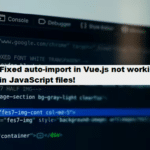In Laravel 11, you can use Route::bind to define custom logic for route model binding. This allows you to customize how route parameters are resolved. For example, if you have a resource like a Portfolio where the slug is not unique across users, you can specify how Laravel should resolve this:
#php
class RouteServiceProvider extends ServiceProvider
{
public function boot()
{
Route::bind('portfolio', function (string $slug) {
return Portfolio::query()
->whereBelongsTo(request()->user())
->whereSlug($slug)
->firstOrFail();
});
}
}With this in place, any route that references the {portfolio} parameter will use this custom logic to resolve the portfolio based on the authenticated user and slug(Laravel Daily)(Readouble).
This is particularly useful for scenarios where route parameters require more complex queries than the default primary key lookup.
Best Practices for Implementing Coding Filters!
To get the most out of coding filters, it’s essential to follow best practices when implementing them. This includes writing reusable filter functions, keeping logic modular, and ensuring that filters are applied consistently throughout your codebase. These practices improve code quality and make it easier to scale and maintain.




